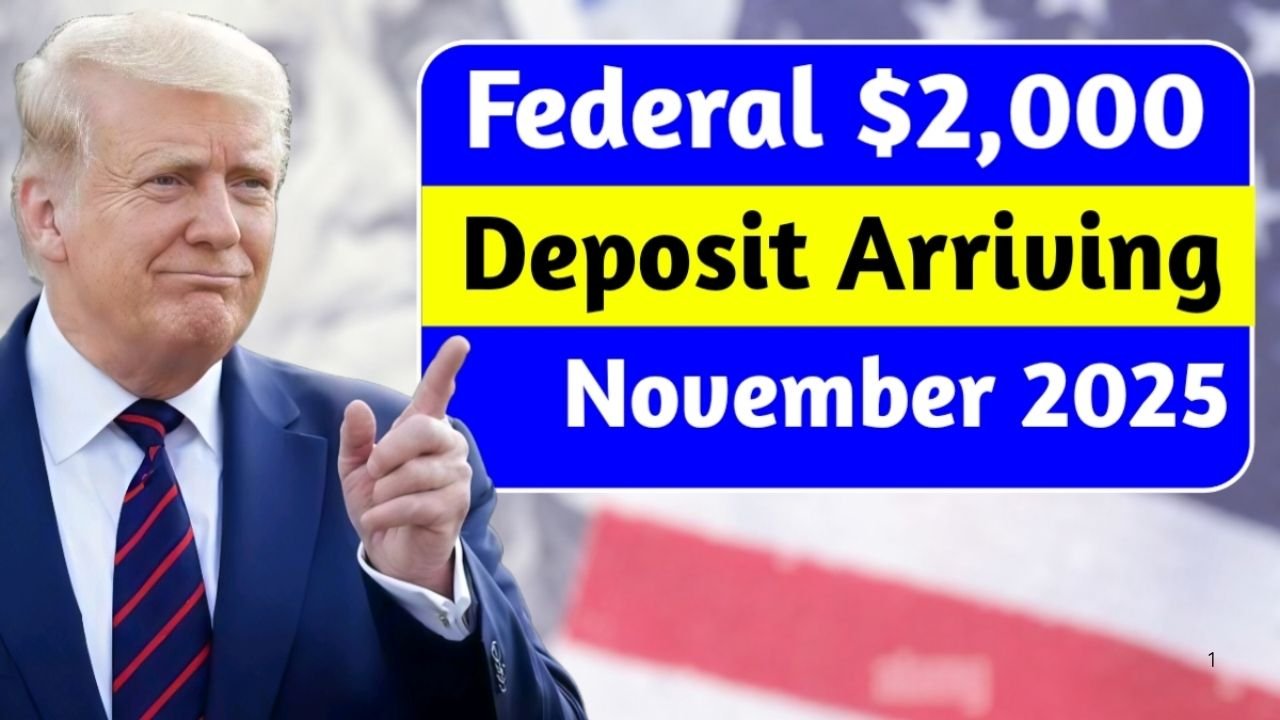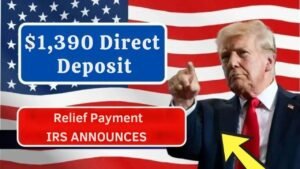With inflation stretching household budgets and essentials becoming more expensive across the United States, millions of Americans are closely watching discussions about a possible $2,000 federal deposit in November 2025. Statements from political leaders — especially former President Donald Trump, who suggested that “every eligible American could receive at least $2,000 per person” — have fueled nationwide interest and hope.
But what is confirmed, what is only a proposal, and what should beneficiaries realistically expect? Here is a clear, fact-checked guide to help you understand the current situation.
Is the Federal $2,000 Deposit Confirmed?
As of now, no federal law has been passed to approve a $2,000 direct payment.
The IRS has also confirmed that it has not scheduled or announced any new stimulus deposit for 2025.
This means:
- There is no official payment date
- No application has opened
- No automatic deposit is planned
However, discussions continue in political and economic circles because millions of Americans are still facing financial pressure.
Who Could Qualify If the $2,000 Payment Is Approved?
If Congress eventually approves a federal payment, eligibility will likely follow previous stimulus models.
Expected Eligibility Requirements
- U.S. citizen or lawful permanent resident
- Valid SSN
- Most recent tax return on file
Income-Based Expectations
Full payments may go to:
- Single filers earning up to $75,000
- Married couples earning up to $150,000
- Head of household up to $112,500 (estimated)
Higher incomes may receive reduced or no payment.
Federal Benefit Recipients
If the structure mirrors earlier stimulus rounds, individuals receiving:
- Social Security (SSA)
- Supplemental Security Income (SSI)
- Social Security Disability Insurance (SSDI)
- Veteran Affairs (VA) benefits
may receive payments automatically without applying.
Again, these are expectations — not confirmed rules.
Why the Proposed $2,000 Payment Is Important
Millions of families are dealing with:
- Higher grocery bills
- Increased rent
- Rising medical costs
- Transportation expenses
For seniors, disabled individuals, veterans, and low-income households, even a one-time deposit can provide meaningful relief. This is why the proposal is widely supported by citizens and discussed across social media and news outlets.
But despite public demand, the government must consider:
- Budget limits
- Economic impact
- Legislative approval
- IRS implementation capacity
This process takes time, which is why no payment has been authorized yet.
What You Should Do While Waiting for Official Confirmation
While the proposal remains uncertain, you can prepare in case the payment becomes official.
1. Follow Verified Government Sources Only
Use trusted platforms such as:
- IRS.gov
- U.S. Treasury announcements
Avoid social media rumors claiming “guaranteed $2,000 payments.”
2. Keep Your Tax Information Updated
The IRS uses your latest return to process payments. Ensure:
- Your 2024 tax return is filed
- Direct deposit details are correct
- Mailing address is current
3. Protect Yourself From Scams
Because no federal payment is confirmed, scammers may try to exploit confusion. Remember:
- The IRS never calls, texts, or emails asking for bank details
- No fees are required to “unlock” or “process” a stimulus
- Never share SSN, bank info, or personal documents with strangers
4. Explore Other Support Programs
Even if the $2,000 payment is not approved, assistance may be available through:
- State-level rebates
- SNAP benefits
- Social Security COLA increases
- Rental relief programs
FAQs
Is the $2,000 federal deposit confirmed for November 2025?
No. There is no official approval or scheduled payment.
Who would qualify if it becomes approved?
Likely low- to middle-income households, similar to previous stimulus rounds.
Will seniors on Social Security get the payment?
If approved, SSA, SSI, SSDI, and VA beneficiaries may be included automatically.
Do I need to apply for the deposit?
No application exists. If approved, payments would likely be automatic.
How can I avoid scams?
Never share personal information. Only trust updates from IRS.gov.
Conclusion
The proposed Federal $2,000 deposit for November 2025 has sparked hope for millions, but it is still only a proposal, not an approved payment. Staying informed, keeping financial records updated, and relying on official government sources will help you be prepared for any future announcements. Until Congress passes a law, all citizens should remain cautious, avoid scams, and continue exploring available financial support programs.





